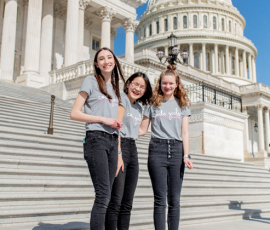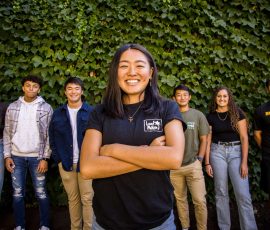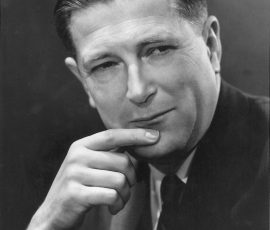Sitka Fine Arts Camp, Alaska
Living Into the New Normal
Over the last few years we've all heard a lot about living into "the new normal." It's a term that reflects a new era, incorporating something that was once unfamiliar or atypical into our daily lives. Researchers suggest that the term dates back to 2008 as a way to talk about life after the financial collapse that preceded the Great Recession. It has been applied in various settings since then, from adapting to a world where social media drives our discourse to urging communities to anticipate more severe wildfire seasons every summer.
The impacts of the COVID-19 pandemic gained a new level of permanence as our "new normal" in 2023 when global health agencies declared the public health emergency period of the pandemic over alongside the broad deployment of vaccinations and treatments for the virus. Companies that at one time declared they would be remote "forever" began ushering employees back into the office. Travel restrictions, social distancing, supply chain issues – all hallmarks of our shared pandemic experience – seemed to officially (and hopefully) be behind us. In many ways, life resumed its natural rhythms but now with the understanding that the virus was not going away; it would be part of our everyday lives.
It’s easy to consider the idea of the new normal in a negative light. So often when we think of a new normal it is because a tragedy has forced us to reconsider common practices, be it a global pandemic, an economic earthquake, or an increase in deadly fires. But it's also possible to consider ways in which a new normal can be a positive or a reason for hope. For example, advances in human rights have led to a brighter, more optimistic future for countless communities through the years. Technological innovations have ushered in bright new periods of improved quality of life and prosperity. Medical discoveries like penicillin and the polio vaccine have removed great threats from daily life. And despite so much work ahead of us to alleviate poverty, we have made progress.
A common theme for me throughout this year has been the concept of renewal. This idea has extended itself to our work at the Trust. The concept centers around taking a tested foundation and finding ways to improve upon it. After decades of service to our region, we continue to look for ways to improve service to our grantees. We designed and implemented a new sectoral strategy to significantly increase the impact our investments can have in the areas we serve and drive greater clarity for those seeking funding from the Trust. We adopted new technologies that increase efficiency in how we work, creating a better experience for those we support. We sought to reset our baseline, which has meant revisiting and updating how we define impact and how we will use both metrics and data to help define success for our future. Finally, we considered the future of philanthropy and the nonprofit sector to better define our generative framework, strategy, and engagement models.
I am proud of this team and the work we have done together. I am also grateful for our broader philanthropic community. Our work was not done in a vacuum. Collaboration, insight, and engagement with fellow funders, nonprofits, and business and community leaders have all helped shape our thinking and our strategy. The historic events of the last few years have set off reflection and change across the philanthropic community. They have pushed all of us in the social sector to understand how we can harness the new tools and emerging technologies coming to market that will help us better serve the common good. We are excited to be part of this conversation and the movement to progress together so that every individual, family, and community has an opportunity to flourish and thrive. It is a bright day with a brighter tomorrow ahead.
We often reflect that, at the Murdock Trust, the fruit of our labor grows on the trees of others. In this report, you will see a small snapshot of this concept come to life: hundreds of organizations and thousands of individuals working to uplift and serve the diverse needs of our region, many of whom are doing so in ways adapted to address the new normal. It is a beautiful garden of goodness. I want to thank those who have partnered with us leading up to and throughout 2023 and those we will walk alongside moving forward. We are excited to see what the new normal has in store for our work and for what we can accomplish together.
In gratitude,
Chief Executive Officer
From the CEO
A Look
Back at
2023
$96m
378
1750
$36.1m
$29.8m
$17.5m
$2.0m
$10.8m
Initiative Grants
In addition to our application-based Strategic Project grants, the Murdock Trust awards various Initiative Grants aligned with sector priorities and by invite only. These Initiative Grants fund ecosystem-level interventions that drive specific capacity or growth within the sector. They seek to affect positive change across the entire nonprofit ecosystem that benefits communities long into the future. See a sampling of our Initiative Grants below and join us in thanking all those who participated in these programs.
Total Initiative giving in 2023: $11,937,071 through 126 grants
Ongoing Initiatives:
Board Development
Capacity Building Support
Commercialization Initiation
Faculty Start-Up
Murdock College Science Research Program
Natural Sciences – Life
Natural Sciences – Physical
Partners in Science –Regular
Partners in Science – Supplemental
Strengthening Democracy
Vision and Call Internships
One-Time Initiatives:
COVID-19 Arts & Culture Resilience Fund
COVID-19 Refugee Initiative
COVID-19 Youth Well-Being Initiative
COVID-19 Mental Health Innovation
Leading Through Change
Team Building Care and Development Initiative
Mental Health in the Pacific Northwest
Our benefactor, Jack Murdock, cared deeply about mental health. He knew that access to quality mental health care is critical for individual wellbeing and thriving communities. Proper resources and support can enable people to be present with loved ones, express their creative spirit, find joy in recreation and play, show up fully at work, and engage in the world around them.
Recent years have shown that we have a mental health care crisis in our country. Across the United States,
one in five
suffer from a mental health or substance use disorder, and less than 50% of those suffering seek services. The rate of those who seek support is consistently lower for communities of color due in part to lack of culturally specific mental health care, rural communities due in part to stigma and lack of close access, and youth due in part to social pressures and lack of awareness of options. The statistics tell us something needs to be done, and nonprofits in our region are stepping up to do it.
In this year's annual video series, we are pleased to share three short films honoring some of the life-changing work of Pacific Northwest nonprofits in the mental health space: Mental Health Care for Children, Culturally Responsive Mental Health Care, and Rural Mental Health Care.
All Grantees
Programming
In addition to grantmaking, the Murdock Trust offers programming designed to strengthen nonprofits, develop community leaders, and maximize impact in our five sectors. Below is a list of programs and conferences the Trust was able to offer in 2023, partnering with more than 100 organizations in intentional development and reaching more than 1,000 individuals through all key programming.
Cohort-Style Programs
Essentials of Development
Board Leadership & Development
Board Leadership & Development: Faith-Based
Board Leadership & Development: Green Room
Peer Cohorts
Conferences
Leadership Now
Murdock College Science Research Conference
Partners in Science Regional Conference
Partners in Science National Conference
Vision & Call Intern & Advisor Retreat
Saying Goodbye in 2023
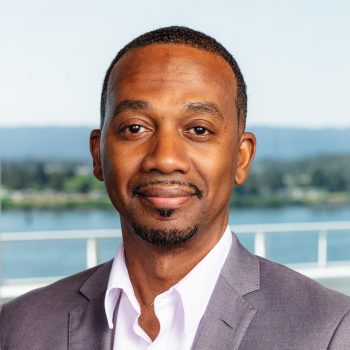
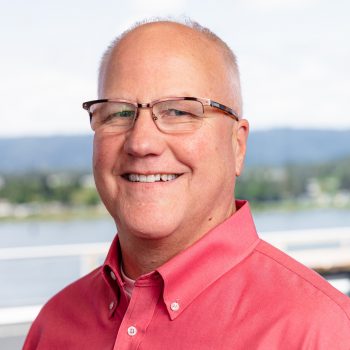
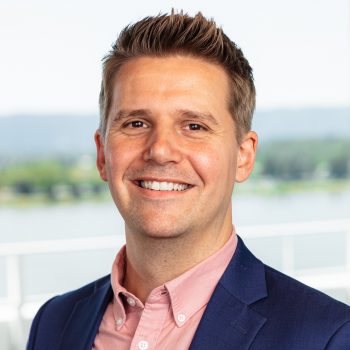
Saying Hello in 2023

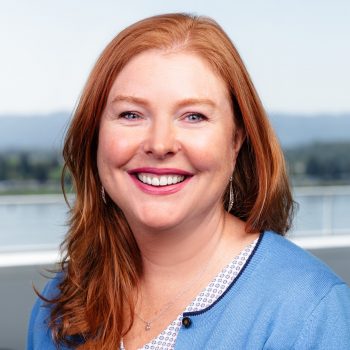




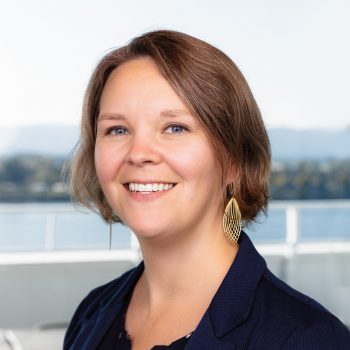
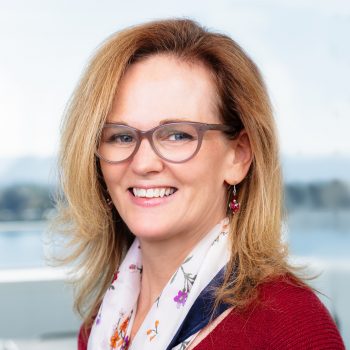
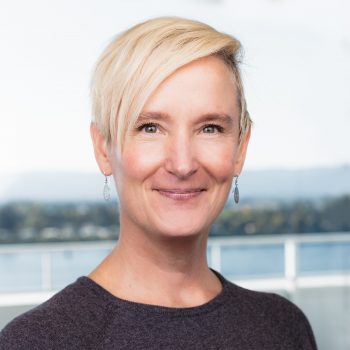
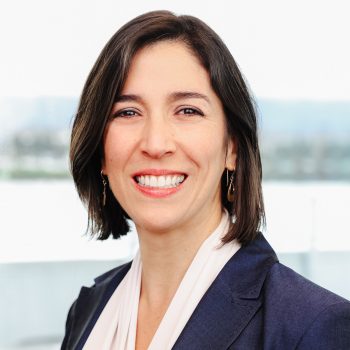
Celebrating Dana Miller
After fifteen years of exemplary service, Dana Miller transitioned out of his role as senior program director for grant programs in 2023. Dana joined the Murdock Trust in 2008 and was well suited to lead the Trust's grant programs and associated processes from the start. Throughout his tenure, Dana oversaw substantial growth in the Trust's grantmaking work, going from more than 250 grants totaling around $42 million in his first year to more than triple that number in his last. From managing new initiatives to growing our program officers and grants team to supervising the transition to an online grants database, Dana led critical evolutions of the Trust's grantmaking with care, wisdom, and dedication. The entire organization is better for it, and we feel the ripple effects of his leadership to this day.
"Dana's steadfastness helped to nurture and guide our Trust grant staff and grantmaking processes. Always mindful of the constituents we serve, he consistently evaluated and intentionally implemented improvements for the applicant, grantee, and Murdock grant staff. His steady guidance supported all aspects of the Trust and affirmed our commitment to the Trust's legacy. We all miss his humble and thoughtful approach for assuring the best outcomes for our Murdock grant staff and our constituency, but we do wish him all the best!" -Marybeth Stewart Goon, Senior Grants Manager
"Dana played an instrumental role in the grantmaking of the Murdock Trust over the last decade and a half. His thoughtful stewardship and astute leadership helped the Trust partner with thousands of nonprofits through his many years of service. On behalf of my co-Trustees, I can confidently say our foundation and the Pacific Northwest are stronger because of his contributions and we are grateful for his faithful service." -John Castles, Trustee
Celebrating Mark Pyatt
For fourteen years, Mark Pyatt played a key role in the Murdock Trust's investment strategy, beginning as Investment Analyst and serving most recently as Investment Officer. Since he joined in 2008, Mark helped steward the foundation's corpus through multiple challenging economic moments, built and nurtured important relationships with investment managers, and was an incredible support through our 2017 chief investment officer transition. The Trust's investment team goal is to be the best client possible for our investment managers, and Mark embraced this philosophy and worked toward it daily. In 2023, Mark transitioned out of his role at the Trust to pursue other opportunities in philanthropy. We could not be more grateful for his time at the Trust.
"Mark possesses many important qualities that have helped him flourish in his contributions to the mission and work of the Trust. Arguably most important of these is that he has a servant's heart. He wants to use his time, his skills, and his energy to help lift others. While it was hard for us to see him move onto a new challenge, we are heartened and inspired to know that he is making this transition to bring his knowledge and expertise to help others in our philanthropic community thrive." -Elmer Huh, Chief Investment Officer
"For nine years, Mark and I worked side by side. From day one we had a strong connection and a deep friendship grew throughout those years. Mark taught me the basics of institutional investing and generously gave his time to answer all of my questions in his calm and thoughtful way. I am so glad he is now using his skills to chase his passion of helping a small foundation grow. Thank you, Mark, and I wish you many years of phenomenal success." -Tammy Bjorkman, Former Investment Administrator
Asset Diversification
Target Allocation
Bucket
low Risk/Return
Investments
- Cash
- Fixed Income
- Real Assets (debt-financed, lower risk)
- Private Credit (lower risk)
Bucket
medium Risk/Return
Investments
- Public Equity
- Private Credit (higher risk)
- Real Assets (equity-financed, higher risk)
- Secondaries
- Evergreen Strategies
Bucket
high Risk/Return
Investments
- Growth Equity
- Private Equity
- Venture Capital
Meet Jack Murdock
The late Melvin J. "Jack" Murdock, co-founder of Tektronix, Inc., was an entrepreneurial leader with business interests throughout the Pacific Northwest. Born and raised in southeast Portland, Jack turned a passion for radio and electronics repair into one of the largest employers in Oregon's history through innovation and a commitment to building a workplace where his team could thrive.
Upon his untimely death in 1971, his will directed three Trustees to establish a charitable trust "to nurture and enrich the educational, cultural, social and spiritual lives of individuals, families and community."
Our Mission
To build capacity in nonprofits driving innovative and sustainable outcomes across the Pacific Northwest.



